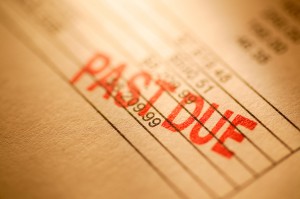What Happens When I File Chapter 7 While in Foreclosure
If you’re facing foreclosure, filing Chapter 7 bankruptcy may be an option you are considering to help your situation. Depending on your circumstances, a Chapter 7 filing may indeed be the relief you’re looking for.
How does Chapter 7 Affect My Mortgage?
When you took out your mortgage, you assumed responsibility to repay the money you received to buy your home, Filing Chapter 7 releases you of that responsibility, at least in part. But with a Chapter 7 bankruptcy filing, there is a lien on your home, which gives lenders an opportunity to continue with the foreclosure in order to recoup the money they lent you.
What Should I Do With My Property After I File My Chapter 7 Case?
You should look at a Chapter 7 bankruptcy filing as a temporary relief from imminent foreclosure on your home. It’s important not to think of Chapter 7 bankruptcy as a permanent solution. During the case, any existing foreclosure actions are temporarily suspended. This is an opportune time to gather funds to try to get caught up with your mortgage payments. The reason you want to do this is because the lien against your property will still be there after the Chapter 7 case is finished. At that time, the lender has the legal right to foreclose on your property.
When Does Title To A Surrendered Home Transfer After Chapter 7?
There are often circumstances that prevent people from continuing to make mortgage payments, even when foreclosure actions have been temporarily suspended. In that case, you can surrender title to your home, and allow the foreclosure to proceed. Realize though, that this does not happen instantaneously. After the Chapter 7 filing is complete, you are still responsible for the property in many ways, including liability if someone is injured on the property, insurance coverage and taxes, among other things. Title to a surrendered home transfer can take months or years, depending on the situation.
Is mortgage debt discharged in bankruptcy assessed by the IRS as taxable income?
When your mortgage debt is discharged in the case of a Chapter 7 bankruptcy, that amount is not counted as income in the eyes of the IRS. If you are in this situation, it’s advised to have a professional prepare your taxes to ensure an accurate filing.
Filing for Chapter 7 bankruptcy is serious business that you shouldn’t undertake without the help of an experienced Chapter 7 bankruptcy attorney.. Contact us today for a free consultation.



